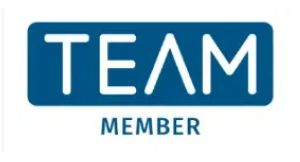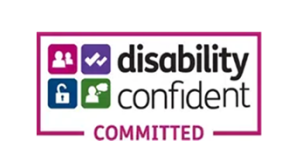For executive roles, search firms / recruitment agencies review applications against detailed assignment briefs outlining competencies, responsibilities, and qualities sought in candidates. Applications must demonstrate leadership impact rather than merely listing responsibilities.
Initial Screening Calls
Following application review, successful candidates receive invitations for screening calls lasting 20-30 minutes. These serve as fact-checking exercises focusing on:
- Confirming basic role requirements and qualifications
- Assessing candidate motivations
- Evaluating communication style
- Determining salary expectations and availability
This stage represents the first human interaction with the hiring team, making a professional impression crucial.
Expected Timeframes
Initial application and screening generally spans 2-4 weeks. CV collection and review typically takes 1-2 weeks, followed by screening calls requiring approximately one additional week.
Organisations using executive search firms / recruitment agencies may see the entire screening phase taking 4-6 weeks from initial brief to shortlist development.
Phase 2: Preliminary Interviews
After passing initial screening, candidates move into the more substantive preliminary interview stage.
Meeting with Recruitment Consultants
Executive search partners / recruitment agencies schedule introductory meetings to evaluate candidates thoroughly. These discussions explore strategic dimensions of current roles and assess teams previously managed, while gaining insight into candidate expectations.
Candidates should recognise that even after these discussions, they aren’t necessarily official candidates yet. Most recruiters handle more than ten job openings simultaneously, making proactive communication essential—expect a follow up within 24 hours after interviews.
Preparation Requirements
Thorough preparation significantly impacts success rates. Executives should:
- Research the company thoroughly
- Understand the organisation’s culture
- Prepare concrete examples demonstrating leadership achievements
- Practice answers
For executive roles, interview questions focus on leadership abilities, management skills, and strategic goal-setting. Over 90% of jobseekers experience interview nerves, making practice essential.
Typical Duration and Next Steps
Preliminary interviews typically last up to an hour. If successful, candidates may be shortlisted within four to six weeks. Shortlisted candidates can expect between three to eight additional interactions with the hiring company. At this stage, search firms often request multiple references for a comprehensive view of the candidate’s profile.
Phase 3: Client Interviews and Assessments
Once shortlisted, candidates progress to direct client engagement—the most intensive evaluation period.
First Client Interview
The initial client meeting evaluates expertise, leadership capabilities, and cultural alignment. For C-suite roles, employers primarily assess problem-solving capabilities, team-building skills, and communication effectiveness.
Second/Panel Interviews
Follow-up interviews often involve multiple decision-makers simultaneously. Some hiring processes involve up to 16 rounds of interviews for executive positions. Panel interviews typically include representatives from different organisational functions, allowing companies to see how candidates perform under pressure while eliminating bias.
Assessment Centers and Psychometric Testing
Psychometric testing has become common in senior leadership recruitment, with 81% of applicants expecting comprehensive evaluation. These assessments provide data-driven insights about leadership potential by measuring personality dimensions and behavioral tendencies. For C-suite positions, many organisations conduct half-day in-person assessments.
Presentation Requirements
Executive candidates increasingly face presentation requirements. Organisations use presentations to evaluate expertise and speaking skills. Effective presentations should provide the bottom line upfront, followed by supporting evidence, and presenters should anticipate interruptions.
Phase 4: Final Selection Process
The final phase involves thorough verification procedures before extending an offer.
Reference Checks
Reference checks are structured around specific job requirements. For executive roles, firms typically verify at least 3 years of employment history after extending a conditional offer.
References must remain accurate and fair while avoiding disclosure of protected characteristics. Though many organisations provide only basic employment verification, detailed references may include skills assessments and disciplinary records.
Background Verification
Executive background screening delves deeper than standard checks because C-suite positions involve access to sensitive information. These checks typically include:
- Identity verification and employment history confirmation
- Educational qualification verification
- Criminal record checks
- Credit verification
- Social media screening
Background verification represents a critical risk-mitigation strategy to prevent reputation damage.
Final Decision-Making Process
Organisations review findings against pre-established criteria, with HR teams working alongside security professionals. Decision-makers must remain vigilant against evaluation biases such as similarity bias, halo effect, and contrast effect.
Phase 5: Offer Negotiation and Acceptance
Salary and Benefits Discussion
Effective negotiation extends beyond base salary to the full compensation package, including bonuses, equity stakes, and benefits. Establish minimum requirements before entering negotiations and have concrete examples of past achievements ready as evidence when requesting specific compensation elements.
Contract Review
Upon receiving a verbal offer, request the complete offer in writing. Thorough contract examination prevents future disputes, particularly around remuneration structures and bonus provisions. Review any restrictive covenants or non-compete clauses that might impact future career moves.
Notice Period Negotiation
Executive notice periods typically extend beyond standard terms. Consider negotiating asymmetrical notice periods—longer when the company terminates employment and shorter when you resign. Throughout negotiations, maintain professionalism and ensure all terms are documented in writing.
Timeline Optimisation Strategies
For Employers: Streamlining the Process
Companies lose 89% of potential candidates due to extended timelines. Organisations should diagnose specific bottlenecks by analysing which recruitment stages take longest.
Technology adoption represents a critical optimisation strategy. Automated screening tools can efficiently filter applications, while video interviewing platforms save time while expanding candidate reach.
Other strategies include creating concise job descriptions, implementing pre-interview assessments, and developing standardised interview templates.
For Candidates: Navigating Multiple Opportunities
Executives should maintain strategic visibility throughout their careers, as most C-suite positions aren’t advertised publicly. Creating compelling social media profiles helps ensure discovery by recruiters.
When considering multiple offers, evaluate each opportunity against long-term career ambitions rather than focusing solely on compensation. Resist accepting counteroffers from current employers, as research shows most executives who accept counteroffers still leave within a year.
KC Group’s Executive Recruitment Approach
Established in 1997, KC Group has crafted a distinctive approach to executive recruitment, combining expertise with tailored methodology.
Our Specialised Process
KC Group’s process stands apart through its people-led methodology. With over 180 years of combined recruitment experience, our consultants invest time upfront to establish each client’s specific needs. For executive searches, we create bespoke processes.
How We Minimise Delays
We brief 100% of candidates at the KC Group thoroughly before presenting them for interviews, reducing unsuitable introductions. Our extensive network across key UK regions provides immediate access to high-caliber talent pools. Additionally, 83% of our clients work exclusively with us, eliminating potential conflicts.
Success Metrics
Throughout our history, we have successfully placed over 12,000 candidates across various sectors. KC Group has received multiple industry accolades, including awards for Service Excellence and Best Client Experience in UK & Ireland.
Summary
Executive recruitment demands significant time investment, careful planning, and strategic preparation. Understanding each phase helps set realistic expectations and achieve better outcomes.
Success rates climb when organisations streamline processes and candidates maintain strategic visibility. KC Group’s track record of over 12,000 successful placements demonstrates that partnering with experienced professionals makes the journey smoother and more efficient.
Thorough preparation, patience, and professional guidance remain essential throughout the recruitment timeline. Companies and candidates who embrace these principles consistently achieve better matches and long-term success in executive placements.













